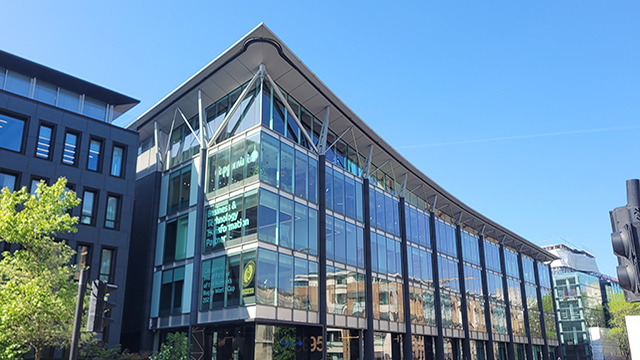Laing v Taylor Walton Solicitors
Buxton, Laws and Moses LJJ
Negligence claim – Abuse of process – Respondent alleging negligence by appellant solicitor in drafting documentation relating to development agreements – Earlier proceedings determining nature of agreements – New claim dependent on showing that judge wrong in his findings – Whether impermissible attempt to relitigate issues decided in earlier claim – Application to strike out refused – Appeal allowed
The respondent entered into agreements with a development company and its owner, W, under which the latter invested £500,000 in a development project in High Wycombe, Buckinghamshire. The appellant firm of solicitors drafted documentation in respect of the agreements.
Disputes arose between the respondent and W as to precisely what had been agreed. W brought proceedings against the respondent in the Technology and Construction Court (TCC), claiming that he was entitled to a 12.5% shareholding in the company that owned the development plus a further 12.5% profit-share. The respondent asserted that W was only meant to have one 12.5% profit interest, for which the 12.5% shareholding was merely intended as security. The appellant gave evidence that partly supported the respondent’s case. However, the judge preferred the evidence of W and allowed the claim.
Negligence claim – Abuse of process – Respondent alleging negligence by appellant solicitor in drafting documentation relating to development agreements – Earlier proceedings determining nature of agreements – New claim dependent on showing that judge wrong in his findings – Whether impermissible attempt to relitigate issues decided in earlier claim – Application to strike out refused – Appeal allowedThe respondent entered into agreements with a development company and its owner, W, under which the latter invested £500,000 in a development project in High Wycombe, Buckinghamshire. The appellant firm of solicitors drafted documentation in respect of the agreements. Disputes arose between the respondent and W as to precisely what had been agreed. W brought proceedings against the respondent in the Technology and Construction Court (TCC), claiming that he was entitled to a 12.5% shareholding in the company that owned the development plus a further 12.5% profit-share. The respondent asserted that W was only meant to have one 12.5% profit interest, for which the 12.5% shareholding was merely intended as security. The appellant gave evidence that partly supported the respondent’s case. However, the judge preferred the evidence of W and allowed the claim.The respondent brought a claim against the appellant, alleging that the agreement had been negligently drafted. He submitted that properly drafted documents would have made it clear that only one instance of 12.5% had been intended, and that W would have signed them as a reflection of the true agreement. The appellant did not dispute the respondent’s view of the agreement or that it had owed him a duty of care. However, it applied to strike out the claim on the ground that it was a blatant attempt to relitigate issues that had already been decided. In the court below, the judge refused that application. He found that: (i) although the claim would involve relitigation of issues already decided, the TCC judge’s findings concerning the agreement were open to serious challenge; (ii) the new claim had a real prospect of success; and (iii) allowing the proceedings to continue would not bring the administration of justice into disrepute or be manifestly unfair to the appellant. The appellant appealed.Held: The appeal was allowed. In order for the respondent to succeed, he would need to establish that the underlying agreements were as he alleged, and that, in drafting the documentation, the appellant had failed to reflect what the respondent and W had agreed. Since the judge in the TCC proceedings had found against the respondent on the nature of the underlying agreements, the new claim would require the respondent to show that the judge had been wrong on that point. Not only was it far from obvious that his decision was open to serious challenge, but any criticisms of his findings could have been, but were not, deployed in an appeal from his judgment. The new proceedings sought to relitigate the first case on the basis of exactly the same material as was, or could have been, before the judge in that matter. It would bring the administration of justice into disrepute if the respondent were to be permitted in the second claim to advance exactly the same case as had been tried and rejected in the first. If the respondent wished to disturb the judge’s ruling, the proper course would have been to appeal: Hunter v Chief Constable of West Midlands Police [1982] AC 529 and Phosphate Sewage Co Ltd v Molleson (1879) 4 App Cas 801 applied.It made no difference that the second claim was not between the same parties as the first or that the respondent sought not to reverse the decision in the first claim, but to recover from the appellant the cost to him of that decision. It would not necessarily be a valid objection to a claim for solicitor’s negligence in relation to litigation that the claim asserted matters that were different from those decided in the litigation. However, in the instant case the claim was abusive because, in order to succeed, the respondent had to show not only that the judge’s decision in the first case was wrong, but also that the error flowed from an incorrect assessment of the very matters relied upon in support of the new claim: Walpole v Partridge & Wilson [1994] QB 106 and Arthur JS Hall & Co v Simons [2002] 1 AC 615 distinguished.Michael Pooles QC and William Flenley (instructed by Mills & Reeve, of Birmingham) appeared for the appellant; Jonathan Marks QC (instructed by McBride Wilson & Co) appeared for the respondent.Sally Dobson, barrister










